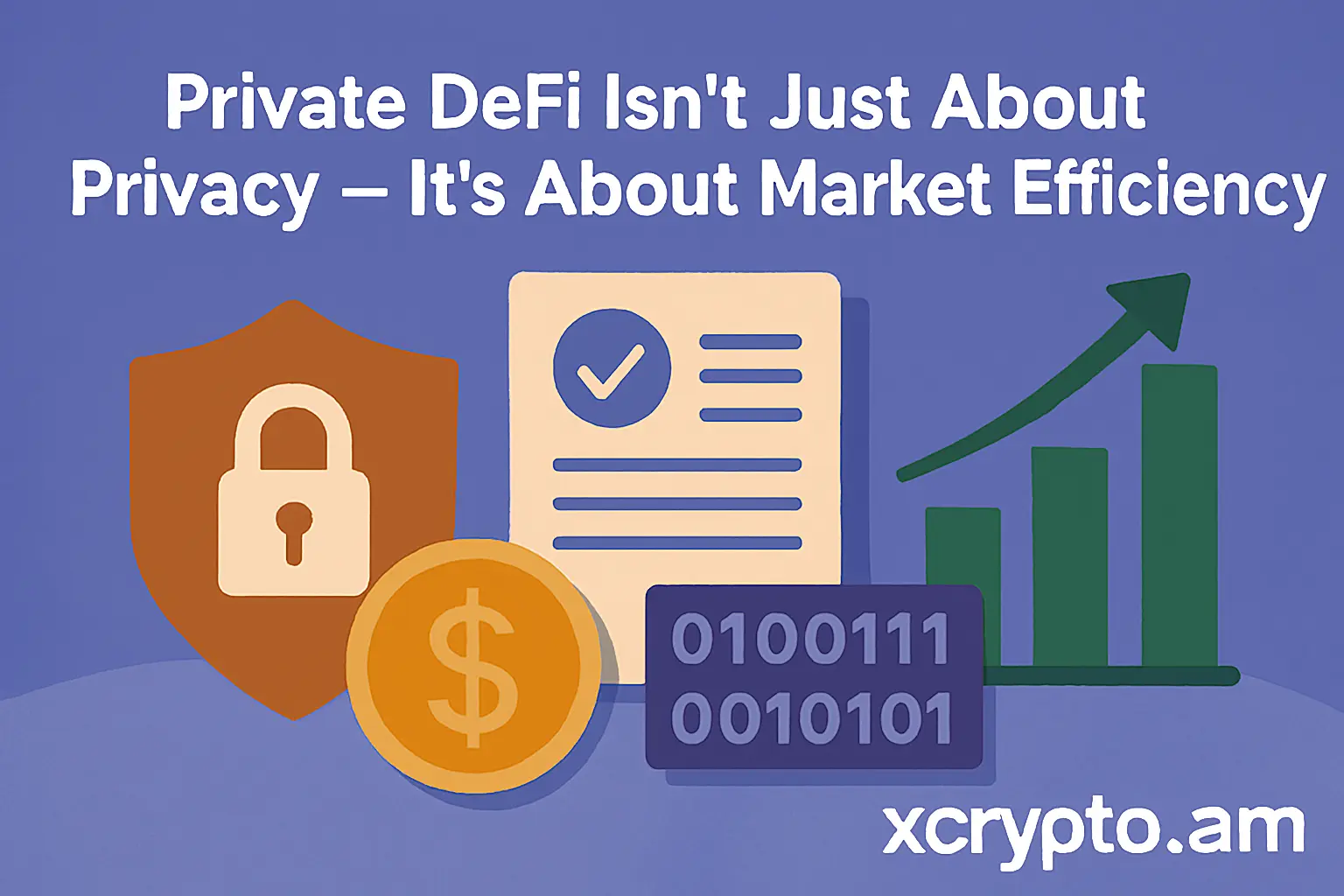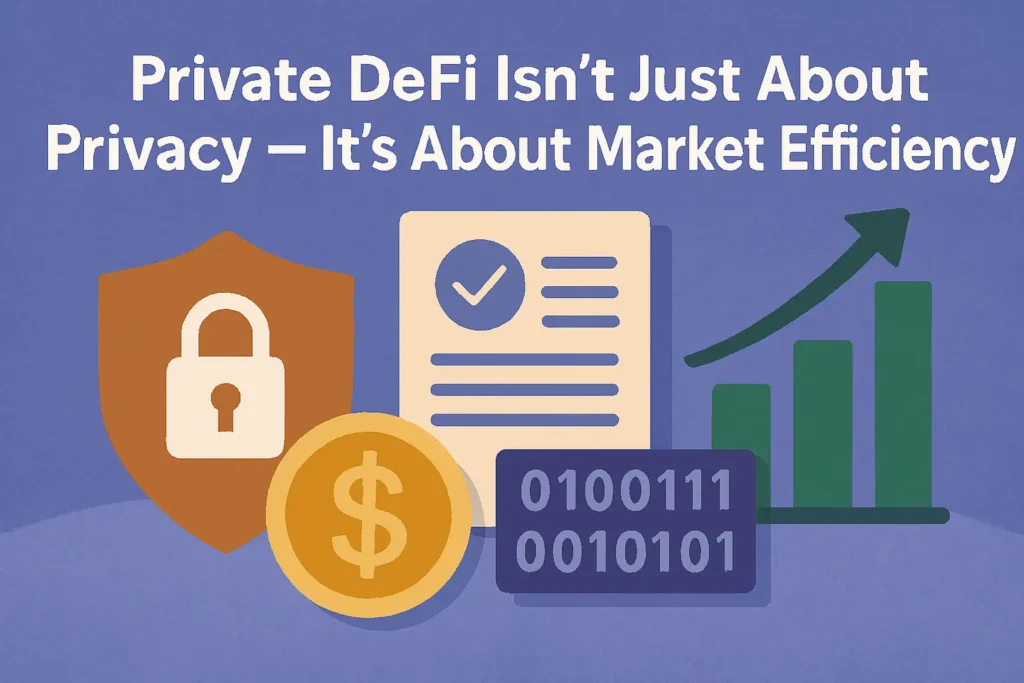Private DeFi Isn’t Just About Privacy — It’s About Market Efficiency

Believe it or not, DeFi has a transparency problem. While openness is one of its core values, radical transparency comes with hidden costs — especially for institutional players, capital allocators, and protocol builders. What works for pseudonymous retail users can be a dealbreaker for serious market participants.
🧨 The Hidden Costs of “Openness”
In public blockchains, every wallet, trade, and strategy is visible in real time. That sounds empowering — until it isn’t. Here’s what really happens:
- Wallet doxxing: Pseudonymous addresses get linked to real identities, turning wallets into permanent public ledgers.
- Alpha leakage: Once a strategy is visible, it’s instantly copied, sandwiched, or drained by bots.
- MEV extraction: Bots exploit public mempools to frontrun and reorder trades, siphoning over $1.9B from Ethereum users — an invisible tax on participation.
This isn’t just inconvenient. It’s structurally unfair. Institutions can’t afford to leak trade signals or expose strategic shifts in real time. And DeFi, in its current form, makes that exposure inevitable.
🔐 Privacy as Infrastructure — Not Secrecy
Privacy isn’t about hiding. It’s about protecting strategy while keeping outcomes verifiable. It’s the foundation for fairer, more efficient markets.
Zero-knowledge proofs (ZKPs) unlock this balance. They allow participants to prove something is true — like solvency or compliance — without revealing sensitive data. That means:
- ✅ KYC without exposure: Prove eligibility without sharing personal info.
- 💰 Proof-of-liquidity: Show capital commitments without doxxing wallets.
- 🛡️ Anti-frontrunning execution: Enable private auctions and batch orders where intent stays hidden until settlement.
Private DeFi redefines how data flows between counterparties. It’s not about opacity — it’s about programmable privacy that enables trust, discretion, and performance.

🏦 Institutions Need Privacy to Compete
Retail users are already embracing private trading pools and confidential rollups. Institutions are next — but they need infrastructure that balances compliance, confidentiality, and efficiency.
Hybrid models are emerging: transparency where it’s needed (for regulators, auditors, DAOs), and privacy where it’s strategic (wallets, trades, counterparties). This isn’t a compromise — it’s an upgrade.
If DeFi wants to evolve beyond speculation, it must empower builders and institutions to compete without leaking alpha. Privacy is the starting point.






